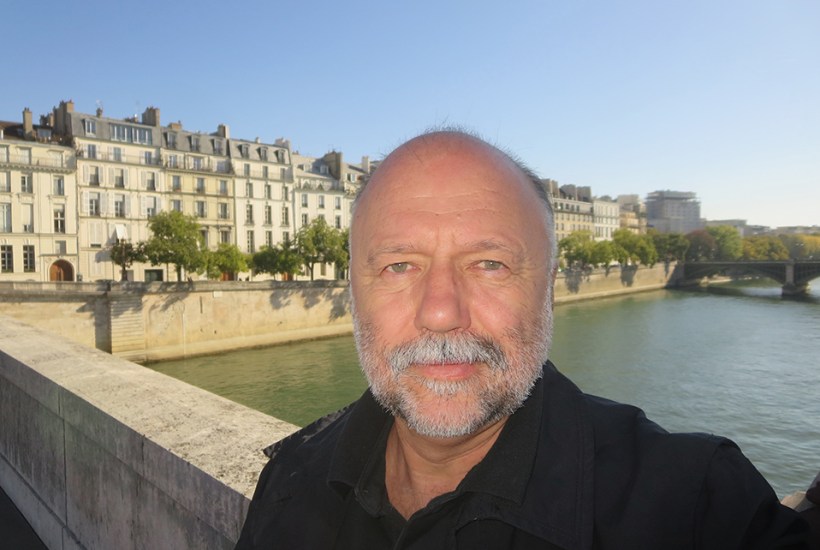The year is 2011, and in Lviv, a city straddling the East and the West, ‘no fog had been thick enough to impede the last 20 years of Ukrainian capitalism’. On the anniversary of Jimi Hendrix’s death, a group of ageing hippies perform a bizarre ritual by a grave marked with his name. Alik and his friends, who have been gathering here since the 1970s to worship the musician, are now living in ‘a “double” past: another age and another country’. They know ‘time can’t be rewound like an old VHS tape’, and yet Alik keeps reminiscing about their Soviet days – a time when, despite everything, the whole town could hear their ‘strange music that the regional party committee didn’t recognise, with strange but, thank God, incomprehensible foreign lyrics’.
Fluently translated by Reuben Woolley and recently longlisted for the International Booker Prize, this novel revisits some of Andrey Kurkov’s trademark subjects, among them men, often on the fringes of society, behaving oddly without quite realising it. Alik lives in a squalid room, crammed with hippy paraphernalia. Captain Ryabtsev, a retired KGB agent who used to spy on Alik, resurfaces to apologise and tell the ‘true’ story of Hendrix’s posthumous journey to Lviv. It turns out that 30 years earlier, tasked with fighting the flower-power counterculture, he fell in love with it. In one comic twist, Alik loses his house key and gets a spare from Ryabtsev, whose work duties once involved paying him secret visits.
Another narrative thread is centred on Taras, who keeps cacti for company and makes a living as a ‘vibrotherapist’, driving his customers down ‘carefully selected’ cobbled streets until their kidney stones come out. His friend Oksana can be relied on for authoritative opinions and practical help; even love in her view ‘is more like mutual aid than anything else’. Taras falls for a more romantic woman, Darka. She is allergic to money, but soon a miracle cures her, bringing their somewhat two-dimensional affair to a climax. As often in Kurkov’s novels, the male characters grow increasingly asocial in the absence of women, who turn up now and then to mitigate the situation.
The narrative unfolds unhurriedly, propped up by Kurkov’s deadpan humour. He thanks real people for letting him use their stories, but the book’s most memorable protagonist is Lviv itself, ‘one of the most interesting and beautiful city-enigmas’, a rich source of urban myth. When it waits sleeplessly, ‘over-powered by dryness, cold and fear’, the tension is more tangible than whatever might be troubling its inhabitants. This landlocked terrain once lay underwater, and now the sea appears to be returning. What’s behind these ‘anomalous natural occurrences’? Since politicians can’t be trusted, a writer is asked to step in. Vynnychuk, the author’s alter ego, bumps into one of his own characters in the street, and the vagrant sailor becomes more real than reality. A lot of drink is consumed before life in the city resumes its normal course.
‘The hippies had left, the police had stayed’ is how Alik summarises the changes his native place has experienced since the end of the Soviet era. While the legacy of totalitarianism continues to weigh heavily on independent Ukraine, reasons for optimism can be found in simple human acts, be it cooking for the homeless or replacing a creaky step. Another way to redemption is, of course, music. Hendrix’s connection to Lviv may be apocryphal, but then again, ‘myths are always more important than the truth’.
Got something to add? Join the discussion and comment below.
Get 10 issues for just $10
Subscribe to The Spectator Australia today for the next 10 magazine issues, plus full online access, for just $10.
You might disagree with half of it, but you’ll enjoy reading all of it. Try your first month for free, then just $2 a week for the remainder of your first year.








Comments
Don't miss out
Join the conversation with other Spectator Australia readers. Subscribe to leave a comment.
SUBSCRIBEAlready a subscriber? Log in